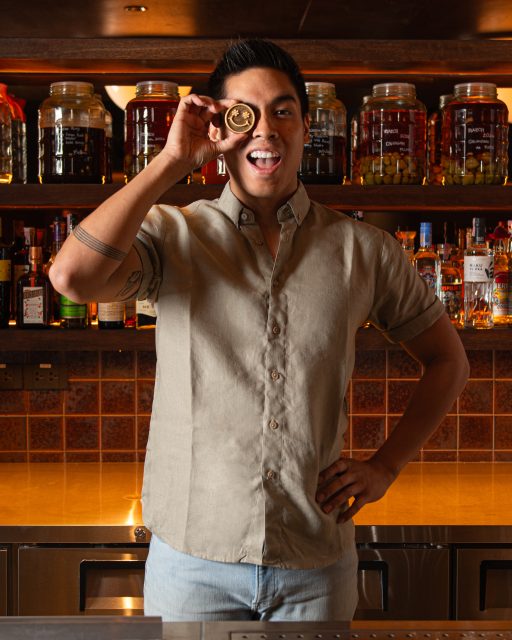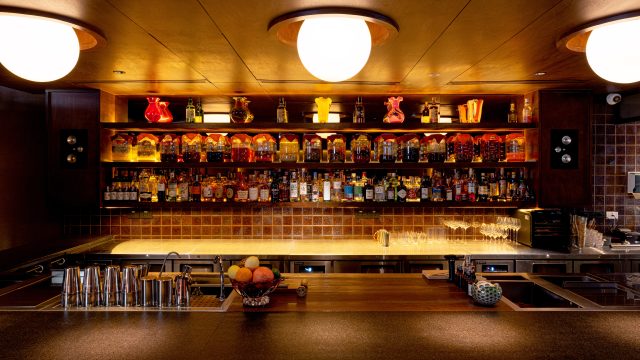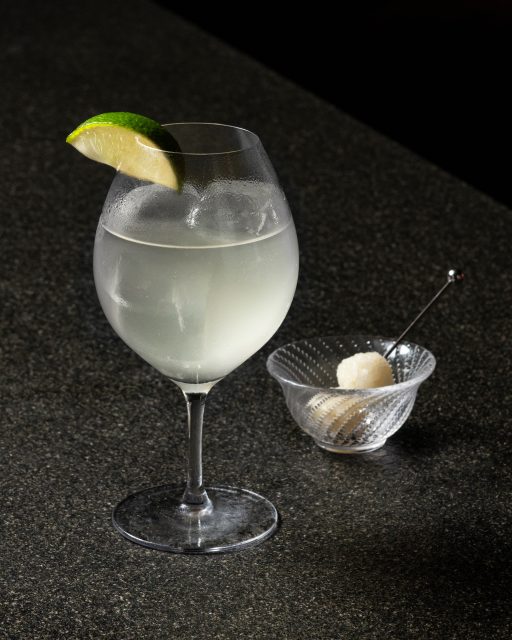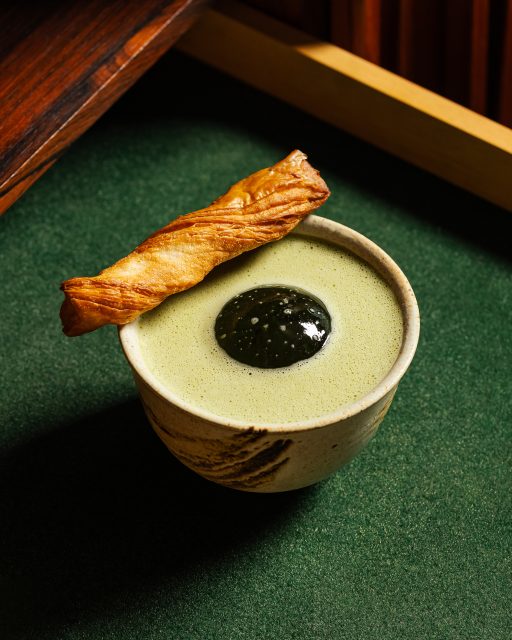This website uses cookies so that we can provide you with the best user experience possible. Cookie information is stored in your browser and performs functions such as recognising you when you return to our website and helping our team to understand which sections of the website you find most interesting and useful.
Pae Ketumarn on fermentation and the Bangkok cocktail scene
With creative Bangkok bartenders tapping into unprecedented levels of ingredient innovation, there’s never been a better time to drink in the Thai capital. Dan Q Dao finds out more.

Though Bangkok’s cocktail scene is still relatively young, it has already emerged as the undisputed frontrunner of mainland Southeast Asia. In recent years, bars like Tropic City and Vesper have secured international awards like the peer-voted World’s 50 Best Bars. On last year’s list, BKK Social Club at the Four Seasons Hotel was the highest ranked in all of Asia.
The latest addition to the booming Bangkok bar landscape is F*nkytown, taking over the fourth floor and fifth floor rooftop of the Bangkok outpost of Sarnies — the Japanese-inspired comfort food restaurant with a flagship location in Singapore. The first drinks-focused venture from the Sarnies group, the bar is helmed by Bangkok-born bartender Pae Ketumarn, who returned to Thailand in 2019 after stints at Shanghai’s Sober Company and Tokyo’s SG Club. It was perfect timing, he says.
“In the last two years, Bangkok has become — if I might say so myself — a much bigger cocktail destination in Asia, growing faster and catching up to Singapore now,” Ketumarn says. “Markets like Thailand and also Vietnam are growing fast because rents and labour are more affordable, which means a lot of big companies are moving here.”
As the name suggests, fermentation is at the heart of F*nkytown’s cocktail programme, inspired in part by an old “Fermentation Friday” tradition amongst the Sarnies team. “During Covid, we got really into fermentation and all things funky,” Ketumarn recalls. So, when the team set out to develop a more nightlife-driven concept, they bet on an experimental bar dedicated to all things funk with a focus on gastronomy, locally-sourced ingredients, and closed-loop sustainability.

“You see lots of consumers both local and international who are looking to explore new things,” Ketumarn says. “The growth of the restaurant scene has also helped expand people’s palates: people aren’t just looking for sweet and sour cocktails anymore. We can add elements of something savoury, or something people have seen in a dish. One of the things I learned working in Shanghai and Tokyo is that you can turn anything into a drink.”
On the F*nkytown menu, the funk level of each drink is measured on a scale of 1 to 5. On the lowest end of this spectrum is a melon and cream soda. Meanwhile, at the higher end is the Som Tum, named after Thailand’s iconic papaya salad typically made with a tomato fish sauce and topped with palm sugar, dried shrimp, and nuts. The street dish is reimagined here through a dry shrimp-infused gin shaken up with pomelo juice (in place of papaya, which lacks a high juice content), tomato honey wine, and a caramelised fish sauce syrup. It’s served with a sprinkle of chilli and two balls of rice on a cocktail spear.

“For the Som Tum, I took inspiration from [a dish I ate] when I was young,” Ketumarn explains. “At the end, you’re left with the broth on the plate and so you use it to dip sticky rice. So I thought, ‘How can I present this in a way that I would enjoy this dish in a glass?’ It’s mostly picking out ingredients from the inspirations and re-engineering them in liquid form.”
For Ketumarn, the use of food as cocktail inspiration is something he sees throughout the continent in increasingly thoughtful and complex ways. Indeed, going beyond simple tom yum-spiced cocktails or mango liqueurs, many Thai bartenders are developing drinks with entire dishes — or the entire cuisine — in mind. Ketumarn cites a longstanding Silom restaurant, Eat Me, open since 1998, as an early pioneer of this ethos. He also mentions nearby newcomer Lost in Thaislation that riffs on local street foods in the neighborhood, like chicken and rice.
But perhaps what truly distinguishes Bangkok from other markets is the specific bounty of ingredients grown locally throughout Thailand. At F*nkytown, a focus on local and seasonal ingredients means sourcing wild foraged honey from Chiang Mai’s Supha Bee Farm and pandan tea from Chiang Rai’s Sawabondin Tea Farm — to use in a Thai riff on a Long Island tea. Even the bar’s bottled water comes from Thailand: Saiyok Springs produces mineral water from Kanchanburi province.
“The trend that I see coming very fast right now is the use of real local ingredients,” he says. “In the past, you would see typical flavours like pandan, kaffir lime, and mango—which are very famous but very stereotypical ingredients. In the past two or three years, people have really been digging deeper about what Bangkok is, and looking at the hidden gems of produce like jackfruit and mangosteen.”
Following global trends, sustainability behind the bar is also a priority for Ketumarn and his team, who follow a closed-loop approach of upcycling ingredients and reducing waste—think giving new life to spent citrus peels as a stock or cordial or turning discarded sourdough croissants from the kitchen side of the operation into an orgeat-like substance for the bar.

“I realised there’s a lot of flavour in the croissants,” Ketumarn notes. “So instead of throwing them away, we overbake them until browned, then cook them down with maple syrup and coconut water to render it into a thick syrup. We then use this to make a rum cocktail that tastes like a matcha latte but with the sourdough croissant flavour.”
Though there’s plenty of innovation at F*nkytown, at the end of the day, the team say their goal is to create a space that’s simply fun and funky. Off the menu, there’s a disco ball, 70s and 80s playlist, and al fresco rooftop seating. And while you can enjoy a super-funky cocktail, they don’t shy away from more straightforward drinks.
“For people who want a drink on the more simplistic side with a sweet and sour profile, our take is the lychee soda with kombucha,” Ketumarn says. “The kombucha adds a little bit of complexity, but it’s still familiar and similar to a lychee-tini, so anyone can get behind it.”

